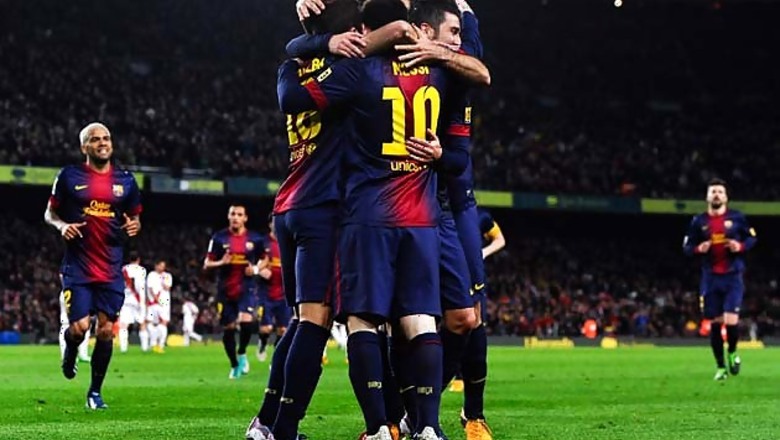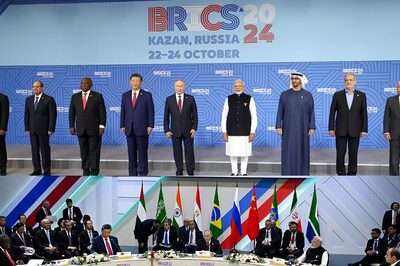
views
Barcelona: At Levante's stadium in Valencia on an evening in late November last year, something unprecedented in Barcelona's recent history occurred that was a dazzling illustration of the success of their much-envied youth system.
When Martin Montoya came on to replace injured Brazil full back Daniel Alves in the 13th minute, he joined 10 fellow graduates of Barca's academy including Lionel Messi, Andres Iniesta and Cesc Fabregas, on the pitch.
Fielding an entire team of youth players is something no other top club can come close to matching, certainly none that has enjoyed the kind of success Barca have in recent years, with four La Liga titles and two European crowns among a host of trophies garnered in the past five seasons.
Former Barca player and coach Johan Cruyff is widely credited with laying the foundations for the academy's success in the late 1980s and early 1990s. The Dutchman made it more structured and professional and insisted all the players, from the youngest through to those on the fringes of the first team, were imbued with the quick-passing, possession-based brand of football that has become the club's ethos and trademark.
Guillermo Amor, a former Barca midfielder, has been part of the youth system, either as a recruit or manager, for around two thirds of his life. Now 45, he was a key member of Cruyff's "Dream Team" that won the club's first European title in 1992 and is their current director of youth development.
Standing in the sunshine at Barca's training ground outside the Catalan capital, Amor reflects on the reasons why other clubs are so keen to copy the Barca model and explains what they look for in young players keen to sign up.
"It all comes probably from the way the first team has performed," he said.
"Above all it is about the way of playing, the style, the system and of course the results," he added.
"Everyone sees it and if, on top of that, you see that there are so many youngsters from the academy then it's natural that you want to come here and see how it's done."
Barca's playing style is about keeping possession and circulating the ball quickly and Amor said he and his colleagues look for kids who are addicted to playing and practising. Ball work is paramount and the youngsters will spend hour after hour in small clusters on the training ground pinging the ball around with first-time passes.
Most of the recruits to the club's academy are from the city and the wider region of Catalonia, although the net is spread wider for the older categories when players can be from anywhere in the world.
"I think when you take on a youngster it's because you notice something different," said Amor, who joined Barca as a 13-year-old and played 550 times for the club.
"You see a good footballer despite the young age because they are very small when they are seven or eight years old.
"You get a sense that you will be able to work with them a while to hopefully achieve something.
"We don't immediately think that a player is going to make it to the first team. It's a work of patience, a long-term project."
Amor, who hails from Benidorm where he has a stadium named after him, is full of praise for Catalonia's soccer development system, which he says provides a large pool of youngsters for Barca's scouts to sift through.
"It's a region in which football development, kids football, is very well run," he said.
"There are a huge number of teams and there is a lot of dedication and a lot of work done with the youngsters."
As well as moulding young players into potential professionals, Barca are keen to make sure their educational needs are taken care of should they not be able to make a career in soccer.
"We always say that the person comes first and then the footballer, our main concern is always the person," Amor said.
"We are just as concerned that a player develops as a person as a player. I think that is fundamental."
As to whether Barca's youth system will continue to churn out players of the calibre of Messi, Iniesta and Fabregas, Amor said there was no specific annual target for the number of academy graduates debuting in the first team.
"There will be years when circumstance dictates that one makes it, other years when there are four or five or maybe one year there won't be any," he said.
"We work to create very good players, very good squads and very good teams."
Judging by some of the recent results of the junior teams, the academy is in good shape. On one weekend this month, all but one of their 17 youth teams won, scoring 136 goals between them including a thumping 21-0 success for a girls' side.




















Comments
0 comment